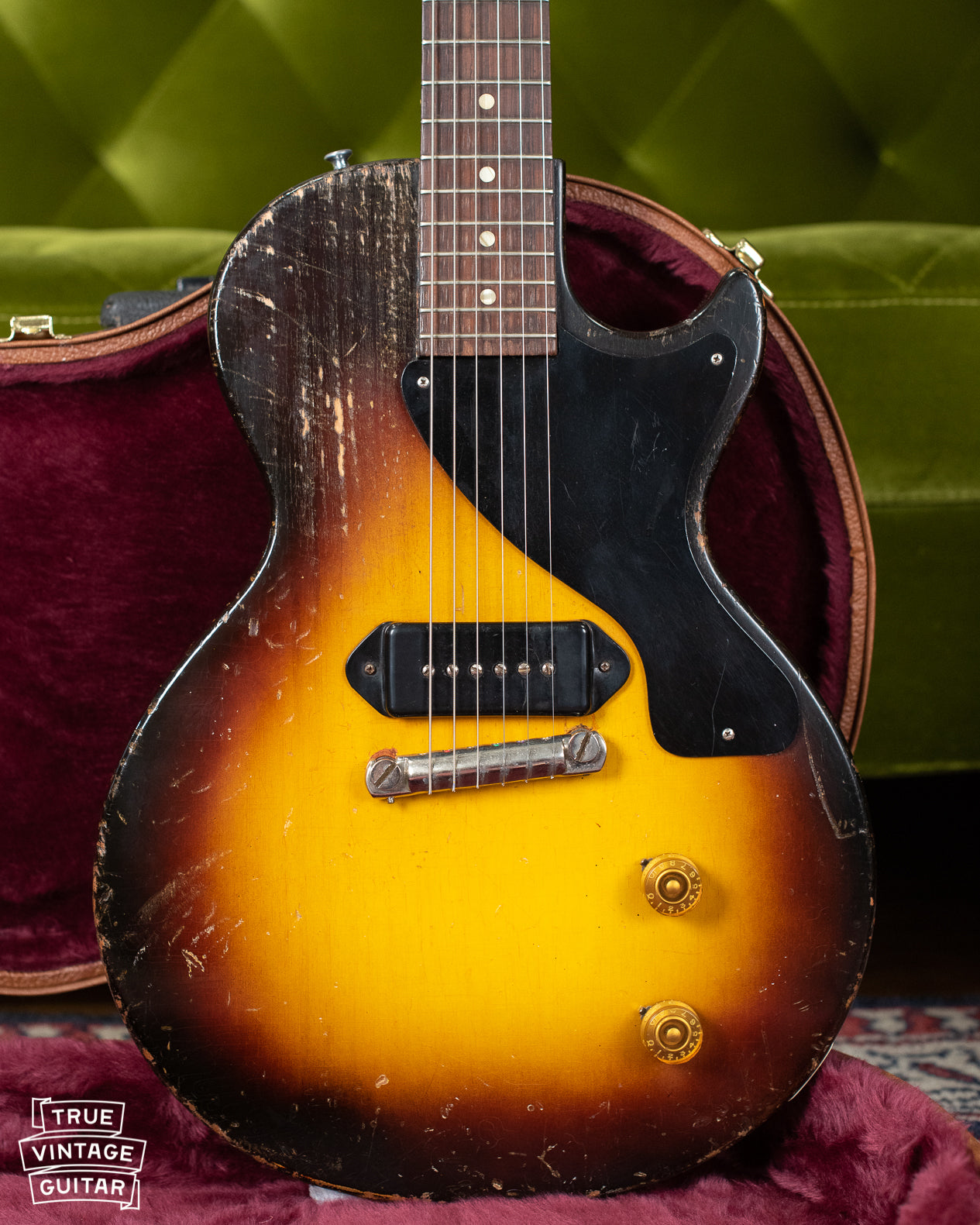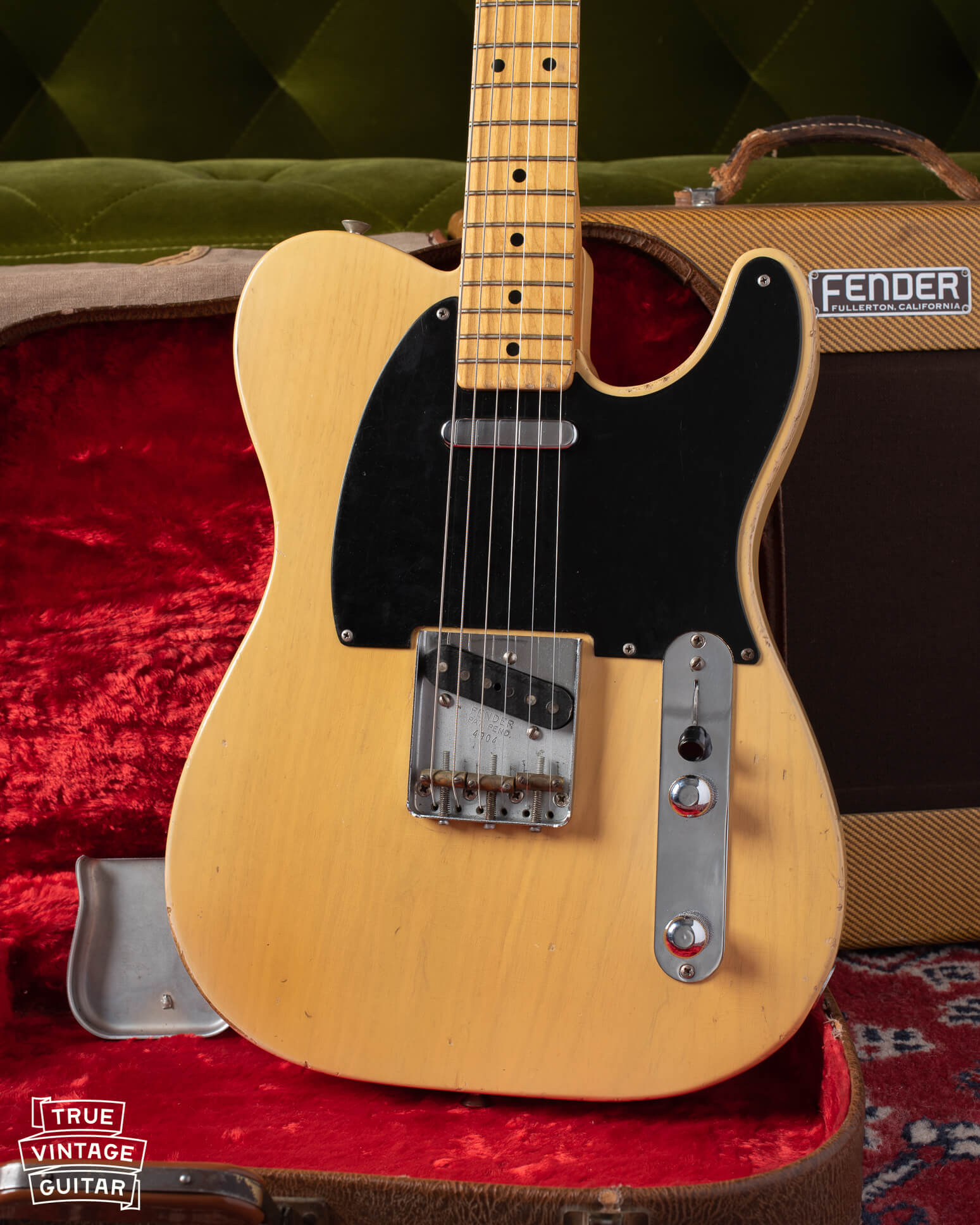If your guitar has 30+ years on it or has been exposed to heat at some point in time, it's very possible that some of the braces aren't secured to the top or back of your guitar. The glues used in building instruments are meant to be repairable using steam or heat. Sometimes the glue just dries up over time and loses its bond. Sometimes it's exposed to heat and becomes liquid again. Since wood is dynamic, we can expect problems with braces from all acoustic guitars no matter how often they were played.
What are the symptoms of loose braces? It takes a skilled eye and hand to diagnose a problem with loose braces. However, you can use this guide to begin learning what these problems look like. The symptoms of loose braces are:
1. Low volume and thin tone: the braces are an integral part of how your guitar transfers the energy from the strings to the wood. When the strings are plucked the top then vibrates causing air to move, which is the sound you're hearing from your guitar. The braces direct the vibrations to the appropriate areas of the top while simultaneously retaining structural rigidity. When a brace is loose, its proximity to the top actually inhibits vibrations and loses structural rigidity.
2. Distortion in the wood: the braces also serve the purpose of retaining structural rigidity against 110 lbs of steel string tension. When a brace becomes detached, the strings are allowed to pull and distort the wood out of its intended shape. Some top distortion is normal but excessive distortion is likely a result of loose braces.
3. Cracks in the top or back under a brace: the braces are glued to the top or back of your guitar so the wood resists splitting in those areas. If you have a crack that extends all the way under a brace then you have two problems, low humidity and a loose brace. It's possible that the loss of humidity caused the wood to shrink which pulled the wood away from the brace.
Here are some common ways to diagnose a loose brace:
1. Sight: use a cell phone camera or small mirror with a flashlight to look inside the body. This method is all too common with people that don't know how to diagnose loose braces. The problem is that a loose brace is rarely visibly detached from the top. This is a good way to see if the guitar has had any previous loose braces reglued but
it is not an appropriate way to diagnose a loose brace.
2. Tap test: use a finger to tap in the areas of the top or back where the braces attach. If the tapped sound is hollow and clear then the brace is likely tight in that area. If the resulting sound is thin and has a weird vibration, then the brace is likely loose. You should listen for the secondary tap of the brace against the wood. If the brace is tight then you should only hear one tap and no resulting tap. This test is a good method to determine whether or not a guitar has loose braces. It is not a good test to determine which braces are loose.
3. Pallet knife: this is the best way to find braces that are loose of becoming loose. Use a thin pallet knife and try to gently wedge the knife between the brace and the top/back. The areas that allow the brace in are loose and should be repaired. This is the most effective way to look for loose braces. The downside is that this test takes a very skilled hand a long time. It's great for a luthier but not for the layman attempting to buy a guitar.
If you've found an old guitar then I highly suggest taking it to a skilled luthier for a once over. A guitar with loose braces just will not sound like it's supposed to. This is especially true with Gibson guitars from the 1960s and earlier. Just about every guitar I buy that hasn't been in circulation in a long time needs this type of repair work. A skilled luthier can repair a loose brace with very little evidence of the repair. The resulting improvement in tone makes the cost of the repair completely insignificant.
Are you looking for a skilled luthier to help with your guitar?
If you are looking for a skilled luthier that is an expert in this type of repair then look no further than Jason Burns of
Burns Repair in Birmingham, AL. Jason helped write this post and has reglued countless loose braces in my guitars. Jason can assist you in returning your guitar to optimum playability and tone without sacrificing the originality. A skilled hand like Jason's will improve the market value of your guitar


